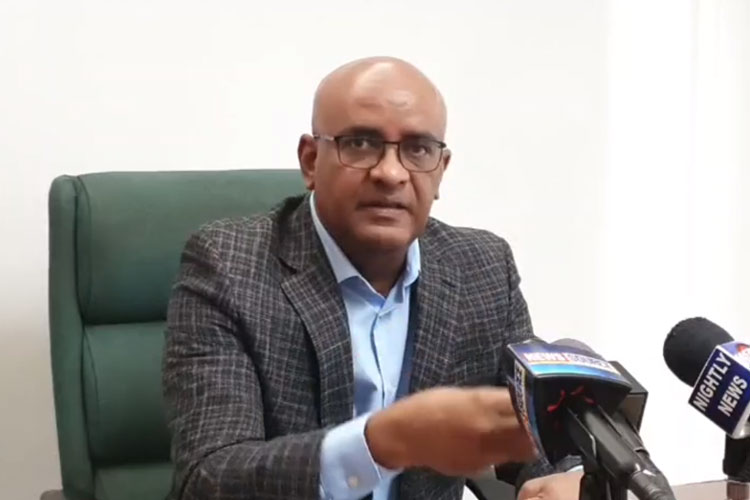According to Leader of the Opposition Bharrat Jagdeo, a merger of House to House registration (HtH) data with the National Register of Registrants Database will delay general elections until April, 2020.
Speaking at his weekly press conference yesterday at his Church Street office, Jagdeo stated that the merger will not improve the database rather it is another delay tactic.
“I’ve seen their latest work programme and with this merger the most optimistic scenario is to go to claims and objections in November because the merger will take about three months and then elections on the 27 April next year,” Jagdeo announced.
On Tuesday, Guyana Elections Commission (GECOM) chair, retired Justice Claudette Singh decided that “Order 25 of 2019 published in the Official Gazette should be amended for the exercise to conclude on 31st August, 2019 instead of 20th October, 2019.” Further she directed that the information compiled over the last month will be merged with the current National Register of Registrants Database (NRRD).
While Jagdeo and the People’s Progressive Party/ Civic (PPP/C) have welcomed the premature end of the process they have vehemently rejected the decision to merge the information.
Yesterday, Jagdeo contended that the data collected is still on the forms the enumerators completed and that entering them into a data base will take about a month or two.
Arguing that a large number of those persons captured during the HtH process had already been registered, Jagdeo asserted that it would be faster to capture new registrants via claims and objections or another process which will be scrutinized by all political parties rather than a merger as proposed by GECOM.
The PPP/C having boycotted the HtH process did not make available scrutineers as provided for by law therefore only the APNU+AFC scrutinized the process.
“The data itself might also be all illegally collected because they changed the statutory form and replaced it with one that didn’t get approval from the commission or parliament,” he further charged while emphasizing that sorting it out would “take ages”.
“That is what we are opposed to. We are opposed to the timeline when there is a simpler way of ensuring everyone gets on the list. Call claims and objections and…every new person can be registered and get on the list. Simple, easy,” he stressed.
In a letter in the August 28 edition of Stabroek News, attorney Christopher Ram who had challenged the HtH in court, criticised the decision to merge the lists.
He said: “Justice Singh is probably unaware of the complexity and difficulties of merging two lists in which any variance affecting any single name, will require extensive further work. For example, in the case of a single individual, there could be several rejections: the order of a person’s full name, the spelling of any one of those names, addresses, fingerprints, etc.
“And what if the exercise has produced names of persons not eligible to be on the list? It is unreasonable and wishful thinking to believe that any claims and objections exercise, no matter how extensive, is going to be able to ferret (out) such names. It is far easier and less prone to errors for the Claims and Objections exercise to result in insertions rather than the reverse.
“Also, it cannot escape any reasonable person that in addition to the systemic flaws in the house-to-house exercise conducted under the pen of the unconstitutionally appointed James Patterson, we now have two classes of persons: those who were so registered and those who were not. Such a situation would be completely unacceptable in any country with a normal government and a more responsible, impartial and less partisan Elections Commission. And what about those ID Cards which GECOM unlawfully declared would be unlawful? Would there now be two sets of ID cards, the James Patterson’s discredited cards and the previous, lawful cards?”






